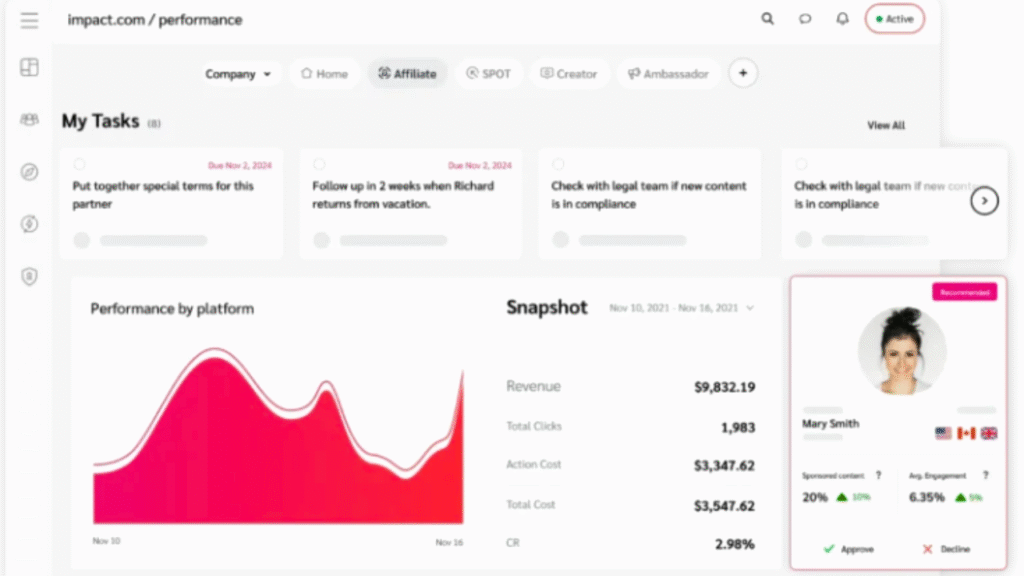What is the meaning of impact company?

In today’s business world, the term impact company has become increasingly popular. Investors, entrepreneurs, and consumers are all paying closer attention to businesses that go beyond profits to create meaningful change in society and the environment. But what is the meaning of impact company? This article will provide a detailed, in-depth explanation of the concept, explore its importance, highlight examples, and guide businesses on how they can become one.
Introduction: The Rise of Impact Companies
Over the past decade, business has shifted from being purely profit-driven to embracing social responsibility. Climate change, social inequality, and global crises have influenced how people think about corporations. As a result, a new wave of enterprises called impact companies has emerged, designed to balance financial success with measurable positive outcomes.
What is the Meaning of Impact Company?
An impact company is an organization that intentionally seeks to generate both financial returns and measurable positive outcomes for society or the environment. Unlike traditional companies that focus solely on profit, impact companies integrate social and environmental considerations into their business model, products, services, and operations.
In simpler terms:
- Profit is not the only goal.
- Positive change is built into the DNA of the business.
- Impact is measurable, not just theoretical.
The meaning of an impact company lies in this dual focus: creating sustainable financial value and addressing some of the world’s most pressing challenges.
Characteristics of an Impact Company
To truly understand what is the meaning of impact company, it’s essential to examine the traits that make them unique. These characteristics set them apart from traditional businesses or those that only practice surface-level corporate social responsibility (CSR). Instead of adding impact as an afterthought, impact companies build it into the foundation of their identity and operations.
1. Intentionality
An impact company starts with purpose at its core. Unlike conventional businesses that may bolt on philanthropic projects after achieving profitability, an impact company intentionally designs its mission around solving pressing issues.
For example:
Warby Parker created its business around accessible eyewear, ensuring that for every pair sold, a pair is distributed to someone in need.
Patagonia openly declares that “we’re in business to save our home planet.” This mission guides everything from the fabrics they use to how they lobby for environmental protection.
2. Measurable Impact
Another hallmark is accountability through measurable results. Unlike vague claims about “helping the planet” or “giving back,” impact companies provide quantifiable outcomes.
They often use frameworks such as:
- ESG (Environmental, Social, and Governance) reporting
- B Impact Assessments for B Corp certification
- United Nations Sustainable Development Goals (SDGs) alignment
Examples:
Ben & Jerry’s publishes annual social mission reports detailing fair trade purchases, climate activism, and progress toward equity goals.
Tesla measures impact by tracking the tons of carbon emissions avoided through its electric vehicles.
3. Sustainable Profitability
A crucial aspect of impact companies is that they are not charities. Their ability to make a difference depends on financial strength. Sustainable profitability allows them to scale solutions and ensure long-term resilience.
For instance:
Grameen Bank, founded by Muhammad Yunus, generates sustainable returns while pioneering microfinance to lift millions out of poverty.
Beyond Meat ties its business growth directly to reduced meat consumption, which lowers greenhouse gas emissions. Their profitability fuels global expansion, amplifying their environmental mission.
4. Transparency and Accountability
Impact companies recognize that credibility depends on openness. They don’t just declare their intentions — they share results, good or bad. Transparency builds trust with consumers, investors, and employees alike.
Common practices include:
- Publishing annual sustainability or impact reports
- Undergoing third-party audits (e.g., B Corp certification, Fair Trade audits)
- Publicly committing to science-based targets for carbon emissions
Examples:
Seventh Generation transparently lists every ingredient in its cleaning products, even when regulations don’t require it.
Unilever reports progress toward its Sustainable Living Plan, showing successes and areas where goals weren’t met.
5. Stakeholder-Centric Approach
Perhaps the most defining feature of an impact company is its holistic view of value creation. Instead of focusing solely on shareholder profits, these companies embrace a stakeholder capitalism model — considering employees, communities, customers, and the environment.
Examples:
Starbucks invests in coffee-growing communities by offering healthcare, education, and fair pricing, which benefits farmers and strengthens supply chains.
Interface Inc., a global flooring company, designs products to be 100% recyclable, reducing environmental harm while benefiting customers who care about sustainability.
, customers, and the environment alongside shareholders.
Why Are Impact Companies Important?

To better illustrate what is the meaning of impact company, let’s explore some of the most recognized real-world examples. These businesses prove that profitability and positive impact can coexist. Each one has embedded purpose into its operations, ensuring that social and environmental good is not a side project, but the very essence of the company.
1. Addressing Global Challenges
Impact companies directly tackle some of the world’s most pressing issues — problems that governments or nonprofits alone cannot solve effectively.
Health & Education: Firms like Warby Parker and Bridge International Academies focus on providing access to vision care and affordable schooling in developing regions.
Climate Change: Companies like Tesla and Beyond Meat actively reduce carbon emissions through clean energy and plant-based alternatives.
Poverty Reduction: Microfinance institutions like Grameen Bank provide small loans to underserved populations, helping millions build sustainable livelihoods.
2. Shifting Consumer Preferences
Consumers today are not just buying products; they’re buying into values. Millennials and Gen Z — who make up the fastest-growing consumer segments — are leading this shift.
- 91% of Millennials say they would switch brands to one associated with a cause they support.
- Gen Z, often called the “activist generation,” is particularly vocal about environmental justice, diversity, and ethical sourcing.
Example:
Patagonia’s Black Friday campaign urged people not to buy new products unless necessary, instead promoting sustainability. Far from hurting sales, the campaign boosted brand loyalty and revenue.
3. Attracting Investors
Impact companies are magnets for a rapidly expanding pool of capital known as impact investing. Unlike traditional investments, these funds specifically target businesses that generate both profit and measurable positive outcomes.
4. Employee Engagement
A company’s impact mission doesn’t just attract customers — it also inspires employees. Workers, especially younger professionals, are increasingly motivated by purpose-driven employers.
- 70% of employees say they would be more loyal to a company that helps them contribute to meaningful social or environmental issues.
- Mission-driven organizations report higher retention and productivity, saving on costly turnover.
Examples:
Salesforce, while primarily a tech company, has embedded philanthropy into its DNA through its 1-1-1 model (donating 1% of equity, 1% of product, and 1% of employee time).
Ben & Jerry’s empowers employees to participate in activism, from climate marches to racial justice campaigns.
5. Long-Term Sustainability
One of the strongest arguments for impact companies is resilience. Traditional businesses that ignore environmental or social risks may see short-term gains, but impact companies build models that thrive in the long term.
- Companies that adopt sustainable supply chains are less vulnerable to disruptions from climate events or resource shortages.
- Businesses that prioritize diversity and inclusion often outperform competitors by fostering innovation and reducing reputational risks.
Example:
Interface Inc., a global carpet tile manufacturer, transformed itself into a carbon-negative company. This shift not only benefited the planet but also reduced costs and strengthened brand reputation.
Examples of Impact Companies
To make the meaning of an impact company even clearer, let’s look at real-world examples.
1. Patagonia
The outdoor clothing company has sustainability built into its business model, donating a percentage of profits to environmental causes and using recycled materials.
2. Tesla
Beyond being an automaker, Tesla positions itself as a clean energy company, accelerating the world’s transition to sustainable energy.
3. Ben & Jerry’s
This ice cream company is committed to fair trade sourcing, climate activism, and social justice advocacy.
4. Warby Parker
For every pair of glasses sold, they distribute a pair to someone in need, blending profitability with global health access.
5. Unilever
The multinational has adopted a Sustainable Living Plan, embedding social and environmental responsibility across its vast product portfolio.
How Does an Impact Company Differ from CSR?
Many businesses claim to “give back,” but the difference between corporate social responsibility (CSR) and being an actual impact company is significant.
- CSR is often a separate department or initiative within a traditional profit-driven company.
- Impact Companies embed purpose into their business model from the start.
Example: A fast-food chain donating to charities is CSR. A plant-based food company reducing carbon emissions by design is an impact company.
How to Build an Impact Company
If you’re an entrepreneur or a business leader wondering how to transition into or build an impact company, here are the key steps:
1. Define Your Purpose
Identify a clear social or environmental problem your company aims to solve.
2. Integrate Impact into the Business Model
Ensure the mission isn’t just an add-on but part of how you generate revenue.
3. Establish Metrics
Decide how you’ll measure success beyond profit (e.g., tons of carbon offset, number of people educated, jobs created).
4. Secure Impact Investors
Look for funding sources aligned with your mission, such as impact funds or ESG-focused investors.
5. Obtain Certifications
Certifications like B Corp or Fair Trade can validate your credibility and accountability.
6. Build a Strong Culture
Train and motivate employees to embrace the mission as part of daily operations.
Challenges Faced by Impact Companies
While the concept of impact companies is powerful, it is not without challenges:
- Balancing Profit and Purpose: Some businesses struggle to remain financially viable while pursuing impact.
- Measuring Impact Accurately: Social and environmental outcomes are harder to quantify than revenue.
- Avoiding “Greenwashing”: Companies risk being accused of exaggerating their impact if they lack transparency.
- Scaling Without Compromising Values: As companies grow, maintaining authenticity becomes difficult.
Future of Impact Companies
The future is bright for impact companies as more people recognize their importance. Trends to watch include:
- Stronger Regulation: Governments may mandate more ESG reporting.
- Impact Investing Growth: More capital will flow toward businesses with purpose.
- Technology for Good: AI, blockchain, and renewable energy innovations will empower new impact models.
- Mainstream Adoption: Eventually, the line between “regular company” and “impact company” may disappear, as purpose-driven models become the norm.
Conclusion: What is the Meaning of Impact Company?
So, what is the meaning of impact company? It is a business that intentionally balances profit with measurable social and environmental good. These companies are reshaping capitalism, redefining success, and inspiring a new generation of entrepreneurs, employees, and investors.
Impact companies prove that doing good and doing well are not mutually exclusive. Instead, they show us a vision of business where profit fuels purpose and where companies are judged not only by their financial gains but by the positive footprint they leave on the world. see
